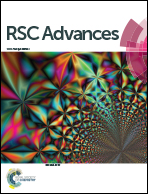Rosmarinic acid attenuates hepatic steatosis by modulating ER stress and autophagy in oleic acid-induced HepG2 cells
Abstract
Non-alcoholic fatty acid disease (NAFLD) has become an emerging entity of liver disorders worldwide. Oxidative stress and deranged autophagy-induced endoplasmic reticulum (ER) stress has recently been recognized as one of the prime factors involved in the pathological mechanism underlying NAFLD and progressive non-alcoholic steato-hepatitis (NASH). Epidemiological and experimental data reveal the potency of dietary polyphenols in averting NAFLD. In this line, to analyse and address the underlying pathogenic mechanisms, in the present study, oleic acid-induced HepG2 cells were treated with rosmarinic acid (RA), a dietary polyphenol with well-established cytoprotective properties. Treatment with rosmarinic acid (20 μg) was found to potently counter the elevated levels of total cholesterol (TC) and triglycerides (TG). Additionally, exposure of oleic acid-induced HepG2 cells to rosmarinic acid showed reduced levels of ROS and increased activity of enzymic and non-enzymic antioxidants. The steatotic HepG2 cells presented a pronounced increase in the expression of key ER stress markers such as p-PERK, p-IRE-1, ATF-6, p-eIF-α and CHOP, which was considerably reduced upon treatment with rosmarinic acid. Moreover, exposure to rosmarinic acid altered the deranged autophagic mechanism in oleic acid-induced HepG2 cells, which was observed via the protein expression of Beclin 1, LC31, ATG5 and ATG7. This study demonstrates that rosmarinic acid abrogates NAFLD via diminishing ER stress by nullifying oxidative stress and restoring deranged autophagy and can be used as a potent adjunct in the treatment of NAFLD, thus illustrating the valuable application of polyphenols in combating NAFLD.



 Please wait while we load your content...
Please wait while we load your content...